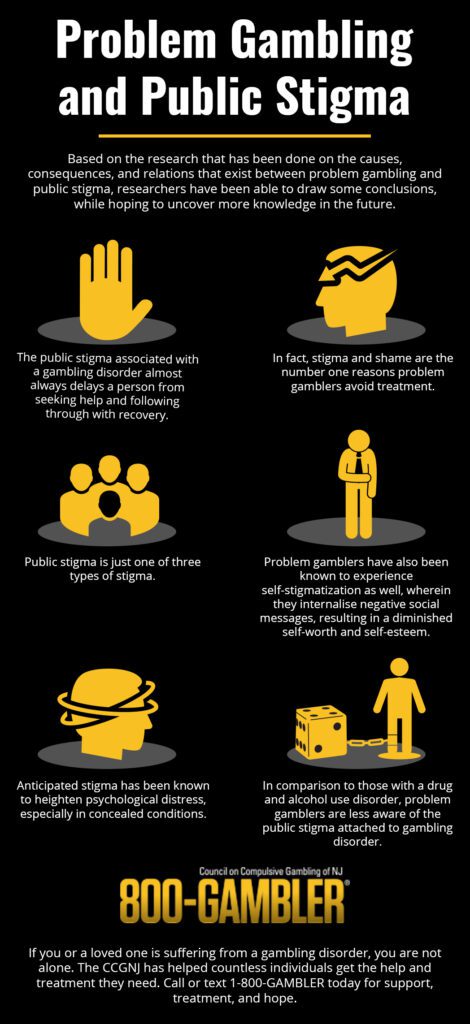There is an incredible stigma surrounding disordered gambling and even alcohol use (sometimes referred to as “addiction”) in Woodbridge and around the nation that can have a damaging effect on those who need help to recover. Labeling those with this disorder as “addicts” can have profound consequences on their health as well as their willingness to seek help.

As an organization dedicated to helping those with a gambling disorder and any other corresponding problems such as an alcohol use disorder (or “addiction”) in Trenton and the rest of New Jersey, we at the CCGNJ feel it necessary to address the stigma of disordered gambling. With this article, we aim to illuminate the adverse effects that stigmatization can have on disordered gamblers, so in the future, we as a society can better help those in need address their disorder and seek recovery.
The Stigma Surrounding Problem Gambling
Stigma is a social process in which individuals who partake in a particular social activity or context are devalued due to a perceived negative attribute associated with that activity. This labeling and stereotyping can lead to a range of consequences for the stigmatized population.
The stigma around disordered gamblers is that they are impulsive, irresponsible, and untrustworthy, among other things. As a result, disordered gamblers are reluctant to admit they have a problem. If they are then labeled as an “addict” close friends and family often begin to treat them differently and dissociate from them, which only compounds their problems.
The Damaging Effect It Can Have
The stigmatization of disordered gambling leads a person to delay the acknowledgment of his or her situation because he or she fears the consequences of being publically labeled as a problem gambler. For the same reasons, a disordered gambler is unlikely to disclose their problem to family and friends, which prolongs the recovery process by delaying treatment.
What You Can Do
Instead of distancing from disordered gamblers and leaving them to seek help alone, we at the CCGNJ are encouraging you to show compassion for those battling a gambling disorder and support them on the road to recovery. We offer help meetings, online resources, and a 24-hour helpline, 800-GAMBLER for those seeking recovery. If you notice signs of disordered gambling in someone close to you, don’t feed into the stigma, be the support he or she needs and help them recover.


